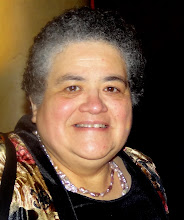It was the first day of classes at the University of Rhode Island, where I teach. One young man, his eyes rather rheumy, approaches me to sign a form acknowledging that he will be away for two classes due to soccer team away-games. I keep myself from exclaiming, “My God, you stink of alcohol!” As he walks out of the classroom, I feel like fanning the fumes away. The first day of classes! A Wednesday!
I am not much of a drinker; most people think I am a teetotaler. I’m not, but a beer or a single glass of wine can hold me for a whole evening. I don’t mind the taste of alcohol, I just cannot stand the side effects of getting drunk. I have seen too many people embarrass themselves by getting sloppy-drunk; or hitting on somebody because their inhibitions are down; or getting sick on somebody’s lawn. I have taken car keys away from friends, and have driven more people than I care to remember home after a party. I detest all of that and would never allow myself to behave in that fashion, and I stay away from people who do.
The idea of showing up for class (or work) plastered simply disgusts me. I immediately wrote him an e-mail: “I don't know if you were aware of how strongly your breath reeked of alcohol, but it did. Before I became an academic, I worked on the street with homeless people, many of whom were alcoholics; thus, it is a familiar smell to me. It is inappropriate to come to class drunk or nursing a hangover. This is a serious class. If you cannot BE serious, please drop it.”
I mentioned it to my colleagues. “Boy, you’re hard,” said one. Maybe I am, but I find such behavior completely unacceptable.
Then I mentioned it to my daughter, who is now 30 years old. She said, “I’d bet most of your students were drinking heavily over Labor Day weekend.” But why? “First time away from home; first weekend away from being home with parents all summer; time to party.”
Oh my God. It suddenly occurs to me that some of the confrontations I’ve had with unruly students could have been alcohol-fueled. I never realized it. Last fall, I had one student who missed every single Friday class of a Monday-Wednesday-Friday class; he had a string of excuses and learned the hard way that I may believe the first few but after a while, I catch on. Then I start getting mad.
Why would anyone spend $13,000 for tuition and fees per year, plus housing and living expenses, to flush it all down the toilet with the dregs of last night’s wine? Then again, why would anyone blow thousands of dollars up their noses with cocaine? I don’t understand. I suppose that in some cases, parents are paying the bills, but everyone in this economy is staggering under the weight of tuition, the high prices of books, and other expenses associated with going to college. I read about students graduating with unbearable burdens of debt. They know how much it is costing their parents or will ultimately cost them—how can they treat their education so carelessly?
When I was a college student, I worked 30 hours a week, juggling three jobs to make ends meet. I lived at home but my family did not have the money for my college education; I either paid for it myself or I would have had to give it up. My education was too precious to throw away.
The first week of classes, Rock, the frat boy who had led my orientation group, saw me in the library studying. He came over to tease me. "Everybody’s like this the first couple of weeks; you’ll get over it.” I remember having that prickly reaction I get when I want to fight with someone and I hold my tongue. “You’ll see,” I said to myself.
Rock was a junior and very active in campus organizations. It was a small school and his reputation got around: Mr. Party-time. I’ve often wondered what happened to him. It’s been many years since I was an undergraduate and I didn’t understand it then either, but at least drinking was confined to the weekend—Friday and Saturday. It didn’t begin on Thursday night, as it does now, apparently. My colleagues report that they have students who come to school on Monday hung over from having drunk away the entire weekend. This leaves me speechless.
Until last year, we had a dry campus. Our former president, Robert L. Carothers, had gone to great lengths to curb the students’ drinking. I didn’t agree with him about many things but in this regard we were in perfect accord. When the new president took over, he immediately lifted the ban on alcohol on campus. I only wish he had to be in the classroom with the professors when they’re dealing with drunk or hung over students. One cannot force students to stop or to realize the great harm they are doing to their education, to themselves, and to their livers, but from now on, when one of these alcoholics-in-training complain about the price of their textbooks, I am going to ask them how much they spent on booze last weekend. I bet it was more than on my class textbooks.
This appeared on MyLatinoVoice the week of September 20, 2010











 President Dooley invited Boyd who, he says, is a friend of the family. This worries me more than anything I’d heard about the new president thus far. On one hand, it feels rather like the Obama/Reverend Jeremiah Wright controversy during the presidential election.
President Dooley invited Boyd who, he says, is a friend of the family. This worries me more than anything I’d heard about the new president thus far. On one hand, it feels rather like the Obama/Reverend Jeremiah Wright controversy during the presidential election.










